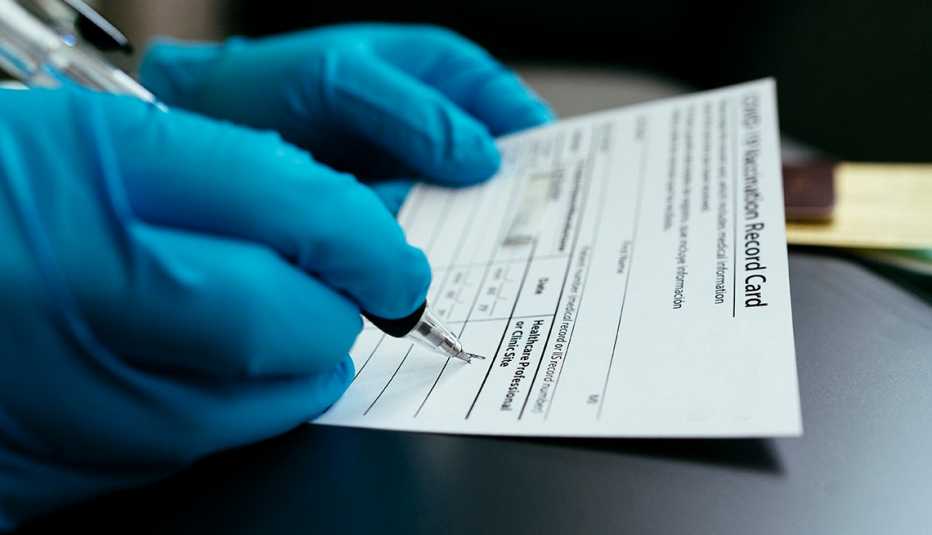AARP Hearing Center


From polio, monkeypox and COVID-19 to shingles and the flu, you may be scratching your head to recall if you and your family members are up to date on your vaccinations. Unfortunately, there isn’t a national organization that maintains these records — but there are various places you can look.
If you are looking for records of your childhood immunizations, the Centers for Disease Control and Prevention (CDC) suggests asking family members for your vaccine history or checking baby books or other saved documents. Some doctor’s offices hold on to this information, but most don’t save files from decades ago.
For more recent immunizations — such as COVID-19, the flu or shingles — ask for the record from the place you got the shot, whether that is a doctor, pharmacist or health clinic.
Many health providers participate in immunization information systems. These confidential, population-based, computerized databases record all immunization doses administered by participating providers to people residing within a given area.
State health departments may also have immunization records. In most states, you can request your record online. For example, in Colorado you can request your or your child’s immunization record through a portal on the state’s website.
Some states still require a written letter or fax. For example, Alaska requires you to mail or fax a request form for your immunization records, accompanied by a copy of an identifying document such as a state-issued photo driver’s license with address, a state-issued photo identification card with address, or a U.S. passport or passport card with photo.
Several states have also made the records available through an app. STChealth CEO Mike Popovich said in a statement that the company’s MyIR Mobile application has seen its greatest growth during the COVID-19 pandemic. It is available in Arizona, the District of Columbia, Louisiana, Maryland, Mississippi, North Dakota, Washington and West Virginia. If you live in one of those places, you can access your records by signing up through the app.

































































More on Health
How to Prepare Your College Student for a Monkeypox Outbreak
The virus is showing up on campuses, but the risk remains low
Side Effects of COVID-19 Boosters
Symptoms are no surprise for people fully vaccinated7 Things We've All Learned About Vaccines
The pandemic has proven quite a teacher when it comes to understanding the science of our shots